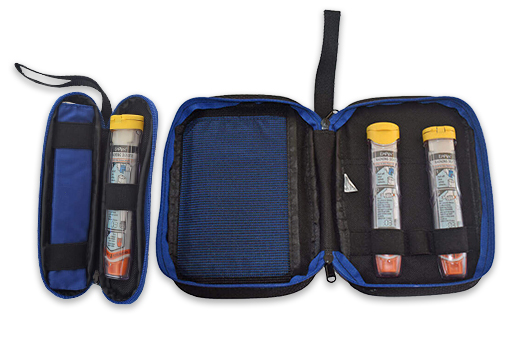An asthma attack and a severe allergic reaction may both cause breathing difficulties, but it’s important to always treat the allergic reaction first if anaphylaxis is suspected.
What is asthma?
Asthma is a disease that causes the airways in the lungs to narrow, which makes it harder to breathe.
Symptoms may include wheezing, persistent coughing, shortness of breath, difficulty breathing and a feeling of heaviness or tightness in the chest.
What is anaphylaxis?
Anaphylaxis is a severe allergic reaction to triggers such as foods, insect bites, medicines, or items like latex.
Telling the difference between anaphylaxis and asthma
Both an asthma attack and anaphylaxis can cause wheezing, difficulty breathing and a persistent cough, so it can be difficult to tell the difference.
However, anaphylaxis coughing symptoms usually start much more suddenly than during an asthma attack.
Remember, an allergic reaction to food can start quickly or may take up to two hours to begin.
One or more of the following symptoms may indicate anaphylaxis:
- Difficult/noisy breathing
- Swelling of the tongue
- Swelling/tightness in the throat
- Difficulty talking and/or a hoarse voice
- Wheezing or persistent cough
- Persistent dizziness or collapse
- Loss of consciousness and/or collapse, or becoming pale and floppy (in young children)
If you are uncertain
If you or someone you know has both severe allergies and asthma, it is essential always to use EpiPen® first if you or they suddenly find it difficult to breathe.
Three things to remember
If you have asthma, have been prescribed an adrenaline auto-injector, and suddenly start to have difficulty breathing:
- Sit down and do NOT stand or walk.
- Give EpiPen® FIRST, followed by an asthma reliever.
- Follow your ASCIA Action Plan for Anaphylaxis, then continue asthma first aid.
If in doubt, use your adrenaline auto-injector.
























